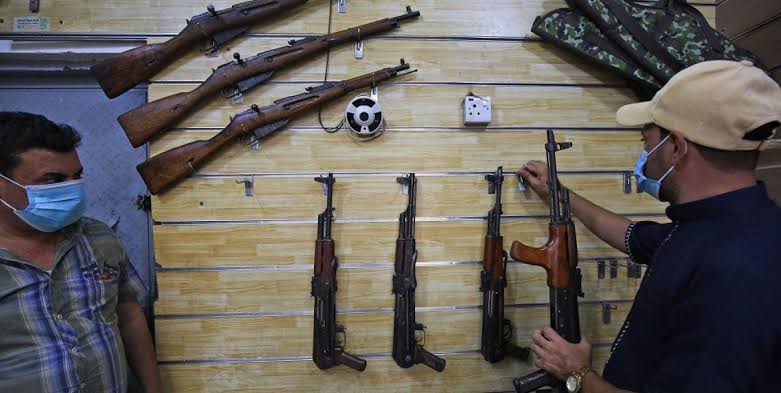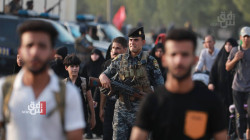Exclusive: Iraq launches second phase of unlicensed weapons buyback plan

Shafaq News/ Iraq's Interior Ministry has launched the second phase of its weapons buyback program, a top officer revealed in an exclusive statement to Shafaq News Agency.
The initiative, according to the spokesperson for the Permanent Committee for Regulating Weapons, aims to collect medium-sized firearms from civilians as part of a national push to tackle the nationwide proliferation of unlicensed arms.
The program, launched on May 1, will run until December 31, 2024, said Brigadier General Ziad Al-Qaysi.
To incentivize the citizens, the ministry allocated one billion Iraqi dinars to each local police department outside the Kurdistan Region in a bid to facilitate the buyback process.
"Committees have been formed to inspect and assess the weapons," al-Qaysi told Shafaq News Agency, urging citizens who possess medium-sized firearms to participate and contribute to the state's efforts toward weapons control.
This follows the ministry's approval of regulations for the program in March and a separate January cabinet decree allowing each household to register one weapon electronically.
"Those who fail to register by December face legal repercussions," said the officer.
The first phase of the initiative was made public in January 2024 in an attempt by Prime Minister Mohammed Shia al-Sudani's cabinet to reduce the number of weapons in circulation outside state control.
Iraq is home to one of the fastest-growing arms market in the world, a concerning share of which is falling into the hands of organized crime groups, driven by conflict as well as fuelling it. Meanwhile, ongoing regional instability and governments failure to address people's security needs are driving civilians to the illicit arms market for self-protection.
The results of the 2021 Global Organized Crime Index show that Western Asia is the region with the world's most pervasive arms market, with an average score of 7.25 out of 10, compared to the global average of 4.92.
Longstanding conflicts in Syria, Iraq and Yemen, among others, have spurred an influx of small arms and heavy weaponry to these countries while neighbouring states become increasingly weaponized.
In Jordan, for example, civilian gun ownership has become commonplace and arms are widely sold in bazaars for anyone who can afford them. Over 90 per cent of the weapons used in violent crimes in the country are found to have been purchased illegally.
Western Asia's appetite for arms is both a cause and effect of conflicts that continue to rage on. The countries with the highest arms trafficking scores under the Index are all involved in conflict in one way or another. Iraq -along with Syria, Yemen and Turkey- scored 9 out of 10 on this indicator, only outranked by Libya (9.5), which serves as a primary source country for arms flowing into the region.
Other factors that have driven demand include the long-standing tensions between Israel and Arab states, the Kurdish quest for independence, and the still-unfolding consequences of political Islamism in Iraq, Syria, and neighbouring states.
Alongside direct supplies from foreign governments, weapons also derive from past conflicts in the region and beyond. Leftover arsenals from the 1980s Iran–Iraq war are still circulating in both countries today, while Soviet-era weapons used in the 1990s Yugoslav wars have fallen into rebel hands amid Syria’s decade-long civil war.
In Iraq where the authorities have failed to reduce robbery and clan disputes over the past years, so-called "house guns"are becoming increasingly popular. According to the Small Arms Survey, nearly 20 per cent of Iraq’s population owned a gun in 2021; in Lebanon the figure is 32 per cent. Not only is the weaponization of civil society a bleak indicator of the growing mistrust towards the government, it also increases opportunities for arms to (re-)enter the black market, particularly when further social unrest inevitably erupts.
Iraq, however, did not become on of the world's largest illicit arms depot overnight. The state-driven flooding of arms, lack of oversight mechanisms, limited law enforcement capabilities, and the lack of international cooperation are all factors that have contributed to the country's most destabilizing actors exploiting the proliferation of arms. This has perpetuated the vicious cycle of conflict that has plagued not only Iraq, but the entire Middle East, for decades.
